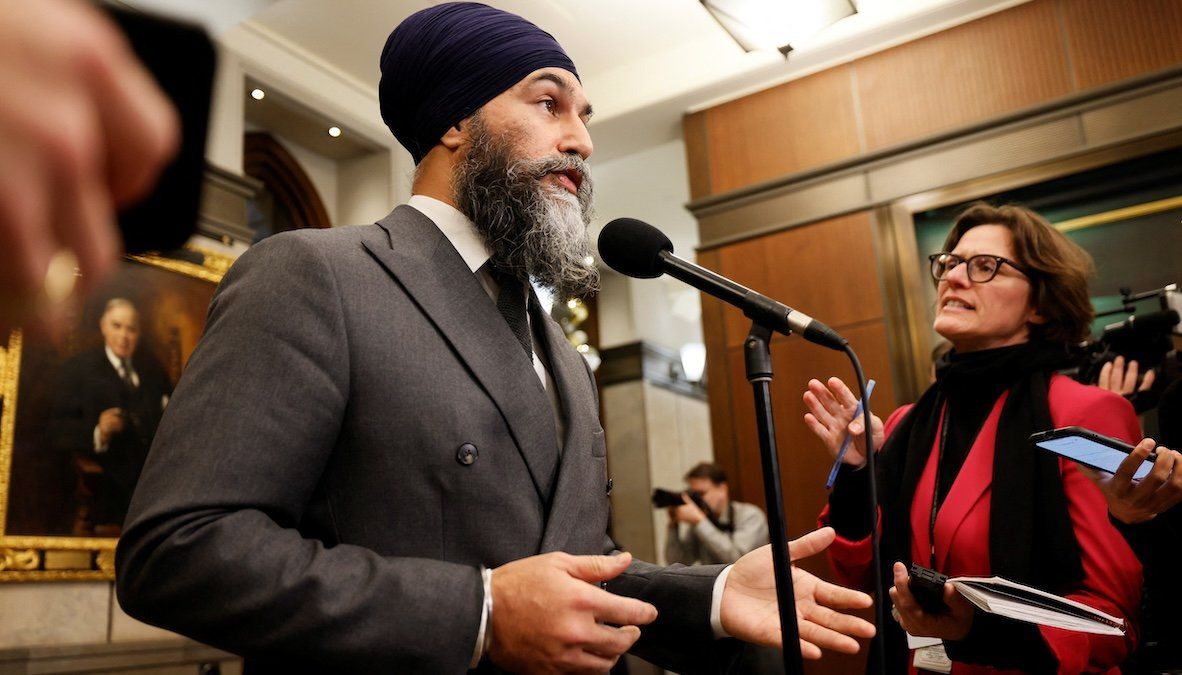Will they or won’t they? It’s been a lot, watching and waiting to see if Canada will face an early election this spring. When Justin Trudeau announced in January that he’d resign in March, launching a leadership race to replace him as Liberal Party leader and prime minister, a spring election seemed certain. Now, maybe not.
The country isn’t due for a vote until October of this year, but the Conservative Party, way up in the polls, is begging for one. And, until recently, it looked like they’d have the backing of the New Democratic Party.
NDP leader Jagmeet Singh has been saying his party would defeat the government and force an election “at the earliest opportunity,” no matter who is leading it. But then Singh said the New Democrats could work with the Liberals to pass legislation to help individuals and businesses hurt by Donald Trump’s impending tariffs.
“I will be voting against the government at the earliest opportunity,” he said Tuesday, before contradicting himself. “If the Liberals are serious, though, about a plan to support workers, call the opposition leaders together. Discuss that plan with us.”
It was confusing.
On Thursday, he clarified himself, saying he thinks Trudeau should recall the legislature immediately to pass a support package for Canadians who’ll suffer from Trump tariffs. Then, in March, the NDP will vote down the government alongside the Conservatives and send the country into an election.
He may not get the chance.
Mark Carney hinted that should he win, he might call the election early himself. But if Trump does indeed press ahead with tariffs on Feb. 1, Trudeau may see it fitting to bring back the legislature, however briefly, to pass an aid package in the dying days of his government.
